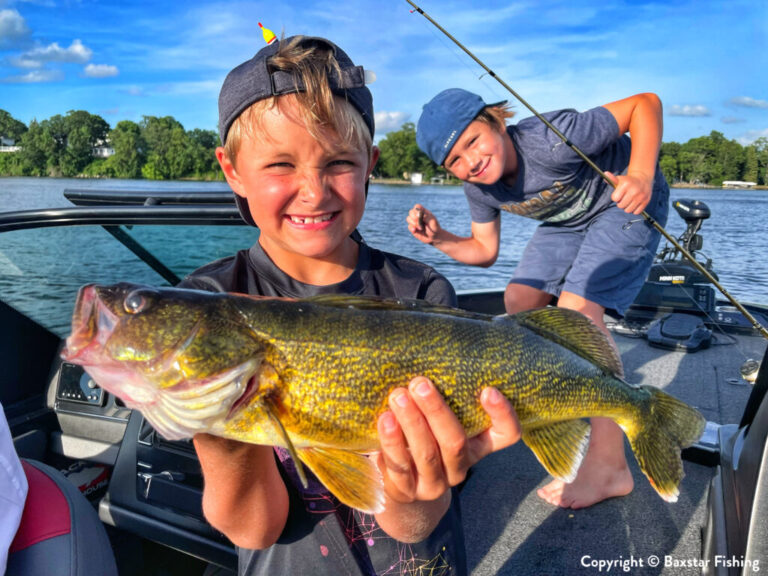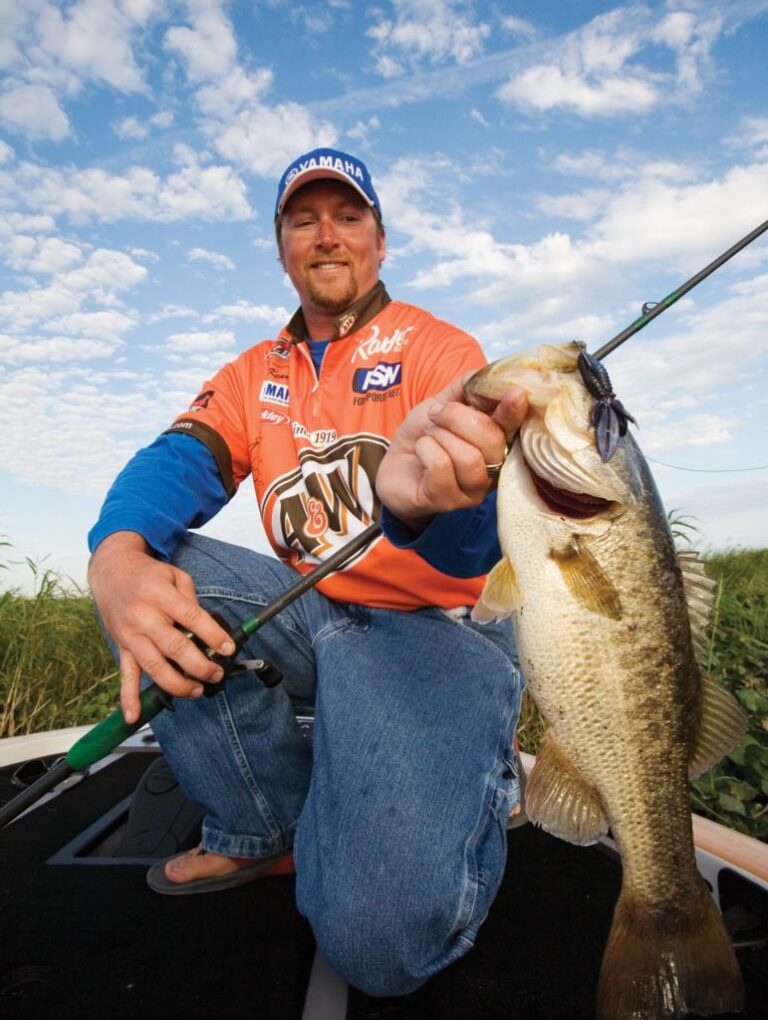Fishing with corn is illegal because it can disrupt the ecosystem and harm fish populations. Using corn as bait can attract non-targeted species, leading to overfishing and imbalances in the aquatic food chain.
Furthermore, corn does not provide the necessary nutrition for fish and can cause digestive issues or even death. Fishing regulations are in place to protect fish populations and maintain a sustainable environment. Thus, it is important to follow these guidelines and use appropriate bait for fishing to ensure the health and preservation of aquatic ecosystems.

Credit: issuu.com
The Impact Of Corn On Aquatic Ecosystems
Fishing is a popular recreational activity enjoyed by millions worldwide, offering an opportunity to relax, unwind, and connect with nature. However, there are certain regulations in place to protect the delicate balance of our aquatic ecosystems. One such rule that has left many anglers scratching their heads is the ban on fishing with corn.
So, why is fishing with corn illegal? Let’s delve into the impact of corn on aquatic ecosystems and uncover the reasons behind this restriction.
Corn As A Potential Threat To Aquatic Life
- Corn is a staple food crop that is widely cultivated around the world. Although it plays a crucial role in global food production, its utilization in fishing can have detrimental consequences for aquatic life.
- When corn is used as bait, it can be easily dispersed throughout the water. This can lead to an excess accumulation of corn particles, causing imbalances in the ecosystem.
- Corn kernels take longer to break down in the water compared to natural bait options, resulting in prolonged exposure of aquatic organisms to foreign substances that can disrupt their natural habitat.
The Negative Effects Of Corn On Water Quality
- Corn contains artificial dyes and flavorings that can leach into the water, compromising its quality. The chemicals present in these additives have the potential to harm fish and other marine organisms.
- Excessive corn usage in fishing can lead to eutrophication, a process where excess nutrients, such as nitrogen and phosphorus, enter the water. This can result in algal blooms, depleting oxygen levels and threatening the survival of aquatic life.
- Corn bait can also serve as a food source for non-native species, such as carp, which are known to outcompete native fish for resources. This can further disrupt the delicate balance of aquatic ecosystems.
Corn’S Impact On Native Fish Species
- Native fish species are often adapted to specific diets and feeding behaviors. Introducing corn as bait can confuse these species and alter their natural feeding patterns, making it difficult for them to find their preferred food sources.
- Non-native fish species, particularly those known to thrive on corn bait, can outcompete native species for resources. This can result in a decline in population numbers and a loss of biodiversity within aquatic ecosystems.
- Furthermore, corn can carry diseases and parasites that are harmful to fish. Using corn as bait increases the risk of introducing these pathogens into water bodies, further jeopardizing the health of native fish species.
By understanding the potential threats posed by corn bait to aquatic ecosystems, we can comprehend the reasoning behind its prohibition. It is crucial to prioritize the protection and preservation of our natural environments to ensure the continued health and vitality of our aquatic ecosystems for generations to come.
Environmental And Conservation Concerns
Fishing with corn may seem like a harmless and effective technique to lure fish, but did you know that it is actually illegal in many areas? In this section, we’ll explore the environmental and conservation concerns associated with using corn as bait.
How Fishing With Corn Disrupts Natural Food Chains
Using corn as bait may appear convenient, readily available, and inexpensive, but it can have detrimental effects on the natural food chains in aquatic ecosystems. Here are a few reasons why:
- Corn is not a natural food source for fish: Fish are naturally adapted to survive on a diet consisting of various aquatic organisms, insects, and smaller fish. Introducing corn into their diet can disrupt the balance of their nutritional intake.
- Alteration of feeding behavior: When fish are consistently exposed to corn as bait, they may become conditioned to feed on it exclusively. This can lead to a decline in their ability to forage for natural prey and disrupt their natural feeding behavior.
The Dangers Of Corn Ingestion For Fish
While it may not seem harmful, corn can pose significant dangers to fish when ingested. Here are a few hazards associated with fish consuming corn:
- Digestive issues: Corn is difficult for fish to digest due to its high starch content. This can lead to digestive problems, including bloating, constipation, and malnutrition.
- Reduced reproductive success: The consumption of corn can impact the reproductive success of fish. It may interfere with their reproductive hormones, egg quality, and overall spawning process, which can have long-term implications for maintaining healthy fish populations.
Corn’S Contribution To Habitat Degradation
Beyond its impact on fish health, the use of corn as bait can also contribute to habitat degradation. Here’s how:
- Increased sedimentation: Corn can cause an increase in sedimentation within water bodies. This happens when uneaten corn sinks to the bottom and decomposes, leading to an accumulation of organic matter and sediment. This can negatively impact water clarity and quality.
- Altered aquatic plant communities: Corn bait can introduce non-native plant species into aquatic environments. These invasive species can outcompete native plants and disrupt the natural balance of the ecosystem, affecting other aquatic life.
Fishing with corn not only violates regulations but also poses significant environmental and conservation concerns. Its negative impact on natural food chains, fish health, and habitat degradation should be taken into consideration when choosing fishing baits. By opting for alternatives that are more environmentally friendly and in line with regulations, we can help preserve and protect our aquatic ecosystems for future generations.
Regulations And Legal Implications
Understanding The Laws On Baiting And Fishing With Corn
Fishing enthusiasts often seek out various bait options to lure in their desired catch. While many bait options are readily available and legal, fishing with corn comes with its own set of regulations and legal implications in many jurisdictions. Let’s delve into the specifics and understand why corn is considered an illegal bait in several areas.
- Regulations on baiting and fishing with corn: It is essential for anglers to familiarize themselves with the rules and regulations set by local authorities regarding the use of bait. These regulations vary by region and may impose restrictions on certain types of bait, including corn.
- Why corn is considered an illegal bait: Corn is regarded as an illegal bait in many jurisdictions due to several reasons:
- Environmental impact: Fishing with corn can have adverse effects on the ecosystem. When corn is used as bait, it can lead to an excessive buildup of sediment at the bottom of water bodies. This can disrupt the natural habitat, affecting the balance of aquatic life.
- Non-native species: Corn does not naturally occur in the aquatic environment. Using corn as bait can introduce non-native species, such as carp, into water bodies. These invasive species can harm the existing aquatic ecosystem by outcompeting native fish for resources and habitat.
- Interference with natural feeding patterns: Corn is an unnatural food source for many fish species, disrupting their natural feeding habits. When fish consume corn as bait, it can adversely impact their nutrition and overall health, leading to imbalances in the fish population.
- The penalties and consequences of using corn as bait: In areas where fishing with corn is illegal, anglers need to be aware of the penalties and consequences associated with its use. These can include:
- Fines: Violating regulations by using corn as bait can result in hefty fines, depending on the specific jurisdiction and severity of the offense. The fines are imposed to deter individuals from engaging in illegal fishing practices.
- Confiscation of equipment: Authorities may seize fishing gear and equipment if an angler is caught using corn as bait in prohibited areas. This serves as a further deterrent against unlawful fishing practices.
- Suspension of fishing privileges: In some cases, repeated offenses or severe violations can lead to the suspension of an angler’s fishing privileges. This means that individuals could be temporarily or permanently prohibited from fishing in certain areas or altogether.
Understanding and adhering to the laws regarding baiting and fishing practices is crucial for anglers to ensure the preservation and sustainability of fish populations, as well as the overall health of aquatic ecosystems. By respecting these regulations, anglers can contribute to the protection of natural habitats and the enjoyment of fishing for generations to come.
Conclusion
The prohibition of using corn as bait in fishing may seem puzzling to some. However, it has been established to protect the environment and maintain the balance of aquatic ecosystems. While corn is an inexpensive and readily available option for fishermen, its negative impact on fish survival and water quality cannot be overlooked.
Additionally, using corn as bait can lead to the spread of invasive species, disrupting native habitats. By enforcing regulations against fishing with corn, authorities can ensure the preservation of fish populations and the overall health of our water bodies. As responsible anglers, it is essential to prioritize sustainable practices that promote the long-term health and conservation of our natural resources.
Exploring alternative bait options that are ecologically friendly is the key to enjoying fishing while minimizing our impact on the environment.





